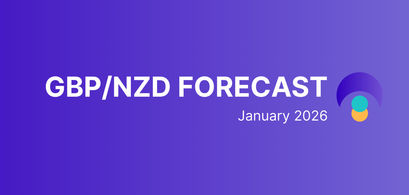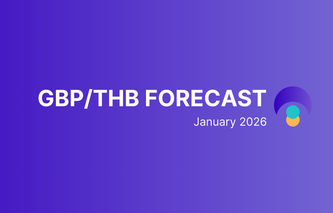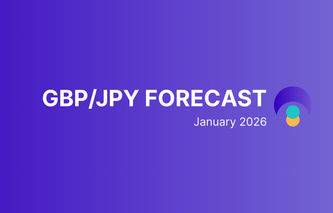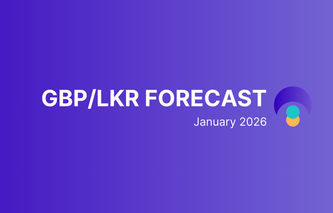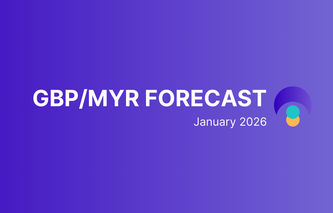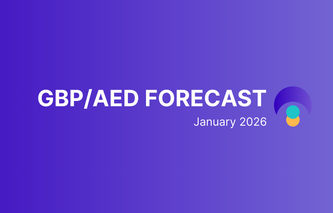If you’re transferring money between the UK and New Zealand, here’s a quick look at what’s happening with the British pound (GBP) and the New Zealand dollar (NZD), and what it might mean for your money in February 2026.
GBP to NZD: Where It Stands
GBP to NZD has bounced back strongly after dipping near the 2.30 area, and it is now trading around the low 2.32s. The near term tone is mildly positive for GBP, but the recovery is still being tested by stronger NZD support when markets feel confident.
For the next month, the most likely outcome is choppy trading with a slight upward bias unless UK data weakens further or global markets turn strongly “risk on,” which usually helps the New Zealand dollar.
What’s Driving GBP to NZD?
First, interest rate expectations are doing a lot of the heavy lifting. New Zealand rate expectations have shifted upward, with markets more open to the idea that NZ rates stay higher for longer, and even that hikes could return later on, which tends to support NZD.
Second, the UK outlook has become less comfortable. Recent UK growth has disappointed, which increases the chance the Bank of England cuts rates soon, and that usually weakens the pound.
Third, global market mood matters more than many people expect. When shares and commodities are rising and investors feel optimistic, NZD often strengthens, which can push GBP/NZD lower even if the UK picture has not changed.
What Do the Charts Say?
The 2.30 area looks like an important floor. It has recently acted as a base where buyers stepped in, so a return to 2.30 would be watched closely.
Near-term support sits around 2.3150, which has been a “line in the sand” lately. If GBP/NZD holds above 2.3150, the rebound can stay alive.
On the upside, 2.33 is the first big hurdle. If it breaks and holds above 2.33, it increases the odds of a push toward the mid 2.34s and possibly 2.35, but follow-through may be slow.
Need to transfer money between the UK and New Zealand?
Find the best GBP to NZD money transfer rates. We'll show you some of the best companies to choose from, putting your transfer in safe hands.
What to Watch in the Next Month
UK data releases will be key, especially anything that changes expectations for Bank of England rate cuts. Weak inflation or jobs numbers can drag GBP down, while upside surprises can lift it.
New Zealand data and central bank messaging also matter because NZD is being supported by higher yield expectations. If NZ data improves or the RBNZ stays firm, it can cap GBP/NZD rallies.
Finally, keep an eye on global risk sentiment. If markets rally strongly, NZD often benefits and GBP/NZD can struggle to move higher.
Risks Ahead
A clear signal that the Bank of England is about to cut rates more aggressively would likely weaken GBP and push GBP/NZD lower. On the other side, if risk appetite fades and markets turn cautious, NZD can weaken and GBP/NZD can jump quickly.
Also, this pair can be volatile, meaning the rate can move noticeably in a short time, especially around big data days.
What This Means If You’re Sending GBP to NZD Abroad
If you need to buy NZD with GBP, rallies in GBP/NZD are good for you because your pounds buy more New Zealand dollars. The levels to watch are 2.33 and above as “better value” zones, while dips toward 2.3150 and especially 2.30 can reduce what you receive.
If your transfer is large or time-sensitive, consider splitting the transfer into two or three parts over a few weeks to reduce the risk of picking a bad day. If you see GBP/NZD approach 2.33 to 2.35, it may be worth acting sooner rather than waiting.
In short
GBP/NZD is trying to grind higher after defending 2.30, with 2.3150 as key support and 2.33 as the main barrier.
The pound faces pressure from possible UK rate cuts, while NZD is supported by higher rate expectations and a positive global mood, so expect a bumpy month with opportunities if GBP spikes higher.
